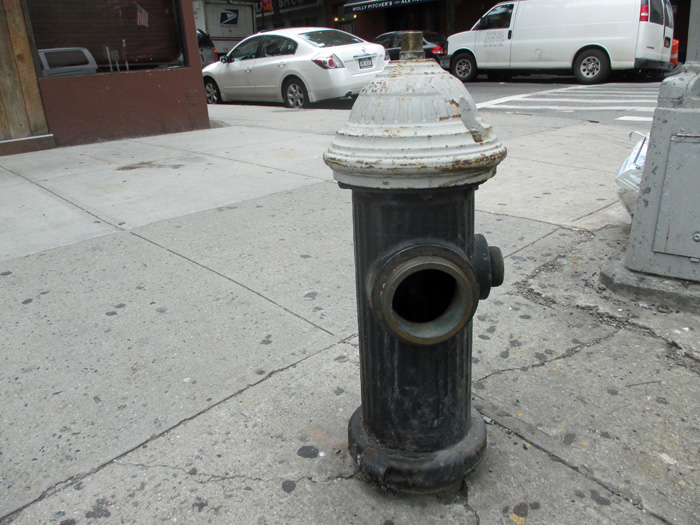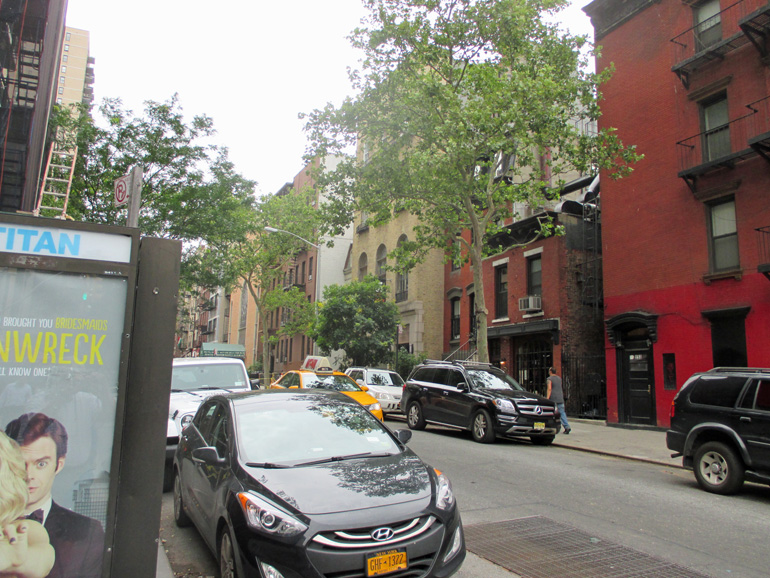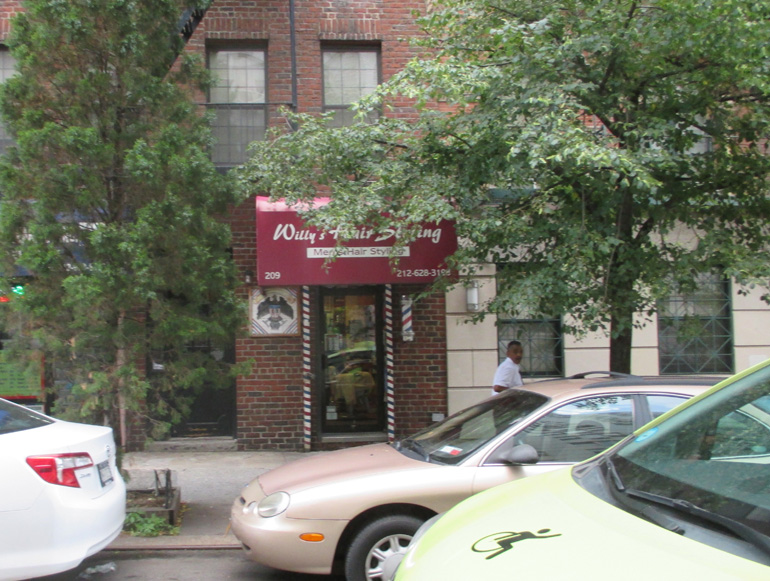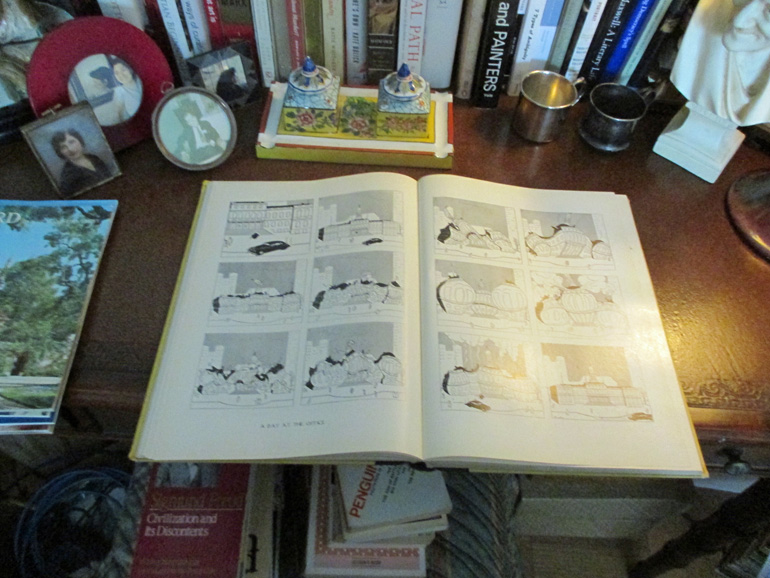Reading Note:
For Shame
22 July 2015
“Trumpusconi” — Frank Bruni’s coinage — ought to be the word of the hour, for however many hours it takes to determine the damage that television has done to the voting public. The Italians have been through this already, and perhaps they have inoculated themselves against a recurrence. Why not vote for the egomaniacal dork who rattles on about possessing the longest this or the priciest that, whose sex life is a string of superlatives? Maybe you honestly admire him, because he’s one of you, only with longer and pricier. Maybe you want to flip the bird to the tired and corrupt institutions that ought to be running the country. Maybe it’s enough that belly-floppers make the biggest splash.
I’ve read that the Huffington Post has relegated Trump news to the entertainment section, as if this comment to its readers has a correlative in the population at large. Italy showed us that voters are capable of folding entertainment and politics into one section.
Timur Vermes’s satire, Look Who’s Back (Er ist wieder da), comes to mind all the time now. In the satire, a rematerialized Hitler promptly becomes a media star, getting top ratings on his own show. The brunt of the satire is the complacency of today’s Germany, which is too fond of thinking that it’s Hitler-proof, but Look Who’s Back also suggests that Hitler’s rise to power was a media event as well. The media were different, and the chemistry was different (you have to attend a rally to get really excited by it), but by the time Hitler took power, he was the most popular political figure. The question of his experience in government meant nothing to most Germans. To have had no experience was closer to the ideal.
Hitler did teach us that applauding an obsessive crank with big ideas about Lebensraum can lead to very uncool outputs. Better to back the guy who’s deranged about more personal assets.
If Trump’s bubble pops in the next couple of weeks, as Nick Cohn predicts, precisely because it is a “media-driven” bubble, then we can all sigh with relief, and I’ll limit my remarks about television’s utter ghastliness, it’s essential emptiness. Otherwise…
***
Granta — to read, or not to read? That is the question, at least for this 67 year-old reader. I flip through the new issue when it arrives. Most names are unfamiliar. The photography is unappealing — deadening, really. I’ve given up on poetry that isn’t written in blank verse. (And I still can’t make up my mind about Emily Dickinson: is she healthy?) The fiction is as likely as not to be tedious. Drawn by the fancy title, I’ll admit, I gave Greg Jackson’s “Epithalamium” a try. I had to stop on the third page, when “Dueva had proceeded to call Hara a — . (I was already having plenty of trouble with the nomenclature; there’s also a character called “Lyric.”) This is the kind of writing that usually — only time will tell — has the shelf life of fresh fish, and I have retired from taking the trouble to discern the few exceptions. You read it.
Partly because this quarter’s issue, Possession, has a fascinating image on its cover (by Julie Cockburn), I put it where it would be sure to be read, if you know what I mean, and I came across Marc Bojanowski’s “This Is New.” “Shortly after I lost my job teaching,” it began, “I began taking my daughter on walks through the rural cemetery near the housing tract where we lived.” I continued to read, non-committally, prepared to put it down at the first sign of tiresomeness. Teaching and housing tracts are no longer of much interest to me. There might have been a hook in the mention of a cemetery; looking back, I can see that, if I were teaching a writing course (!), I’d hail it as a masterstroke. For one thing: the cemetery is the only open space in the neighborhood; what does that tell you about this sorry land? For another: the richness of this question all but demands that the image of the cemetery be dropped, as as a way of suggesting that there is nothing more to be said about the national bankruptcy. But this mandarin analysis had nothing to do with my first encounter with “This Is New.”
A few dozen words later:
And in her toddler’s voice I would momentarily forget that I’d lost my job and shamed myself and humiliated our family; I would forget that I’d become a stay-at-home dad and that my wife was supporting us financially.
Usually, men who have shamed themselves and humiliated their families do not go on to become stay-at-home dads. Isn’t that your experience, too? In fiction, I mean. So, now I was really curious.
“This Is New” feels shorter than it is, because it is packed with occluded clichés. I mean that to be complimentary. An occluded cliché is, obviously, one that you can’t see. It is concealed by being suggested but not mentioned. In this case, the cliché is a string of familiar images: the community college, the underemployed teacher, the unsophisticated students, the community of tract houses, the precarious personal finances. These are all mentioned without comment; we fill in the tiresome clichés ourselves, or watch them unpack themselves all over the reading room of our minds — but Bojanowski has moved on. He gives us just enough not-enough-time to savor his details, only some of which involve the shameful act that cost the narrator his job.
The paragraph that begins with the passage quoted above ends with this: “… I would forget that none of this would have happened if I’d just taken a deep breath, suppressed my emotions and said to the young woman, “Leave. Now.” What happened?
What happened was that the narrator, overwhelmed by the irritation caused by a student — a nineteen year-old black woman, who, having been rude, and then insulting, to the teacher, proceeded to engage with her cellphone during the showing of a documentary in class, and, further, refused to put it away — smacked the phone out of her hand (while she was filming him). That was the shameful act.
I’m not sure that I understand the title, but my impression is that it refers to the inescapability of notoriety wrought by the Internet. You can’t move to another state where nobody knows what you’ve done, or where it will take a long time for your past to catch up with you. I also believe that the story launches a complaint: what the teacher did was not shameful. It was the student who was behaving shamefully, or shamelessly.
I’m curious to know whether “This Is New” was written before or after last summer’s outbreak of protesting violence in Ferguson — an event that for one reason or another tipped the scales, inspiring many Americans — most, it’s to be hoped — to cry out, Enough! Black Lives Matter! Stop Killing Us! Let us finally recognize the persistence of racism and resolve to put an end to it. Let us try to undo the wickedness of Richard Nixon’s foulest deed, which had nothing to do with Watergate or Vietnam or even Chile: the “Southern Strategy.” A strategy for Republican Party victories that was found to be quite useful in other parts of the United States as well. Let us put the WASP dream of white ascendancy firmly in the past.
But, the same token, let us also stop permitting members of minority groups to exploit past oppression to excuse civil misbehavior. In the middle of a class, the young black woman student addresses the white male teacher as “white boy.” Surely that is as unacceptable as her misuse of the phone.
If it is not, there is no point to keeping our schools open.




















